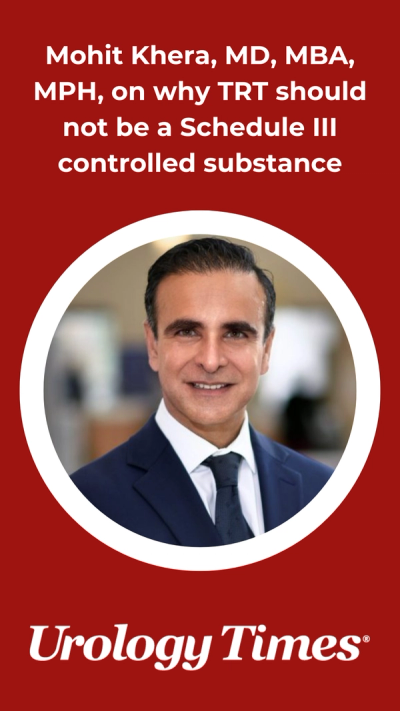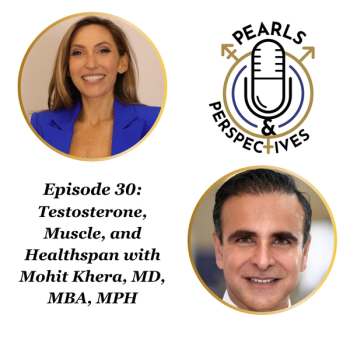
Men's Health
Latest News
Latest Videos

Shorts






Podcasts
CME Content
More News

Data suggested that most patients do not have a preference on the gender of the urologist who is providing their vasectomy care.

The safety and efficacy of testosterone undecanoate was demonstrated in the phase 3, six-month MRS-TU-2019EXT trial.

Miner emphasized that TRAVERSE has reshaped the safety narrative around testosterone replacement therapy, easing concerns about cardiovascular and prostate risks.

Regarding the timing of sperm retrieval, the findings suggest it is reasonable and safe to delay the procedure until adulthood.

Muhammed A. Moukhtar Hammad, MBBCh, outlines key findings from a study evaluating testosterone replacement therapy and hearing-related outcomes.

Landon Trost, MD, discusses patient-reported outcomes from a study comparing CCH treatment vs surgery for Peyronie's disease.

Ellen Cahill, MD, discusses a recent study on testosterone usage among men interested in fertility.

The study is assessing the safety and tolerability of the CaverSTIM device for ED after surgical removal of the prostate.

We recap notable headlines from last month in the benign urology space.

Jansen underscores the need for urologists to go beyond symptom treatment and focus on identifying root causes of testosterone deficiency.

Robert Jansen, MD, emphasizes that all TRT delivery methods can be effective, but selection depends on patient preference, insurance coverage, and individual response.

Jansen stresses that testosterone is not a cure-all and often requires adjunct evaluation and management of other conditions such as sleep apnea or thyroid disorders.

Take a look back through some of the top stories from the first half of the year.

Justin Dubin, MD, discussed how patients' growing trust in digital tools could be leveraged to support lifestyle changes and improve health outcomes.

In healthy aging men without developing diabetes mellitus, modest increases in HbA1c were linked with declines in sperm motility and erectile function.

Mina M. Fam, MD, discusses some of the common misconceptions that patients have when seeking testosterone replacement therapy.

“With the right use, AI can and hopefully will play a massive role in patient education,” says Justin M. Dubin, MD.

Justin M. Dubin, MD, outlines the current ways that artificial intelligence is being used in the male infertility space.

Catch up on exclusive videos you may have missed from the first half of the year.

In this video, part 5 in a 5-part series, panelists examine the economic and logistical realities of bringing mitomycin for intravesical solution (Zusduri; formerly UGN-102) into private practice.

In this video, part 4 in a 5-part series, Nick Liu, MD, outlines key scenarios where surgical resection remains preferred for treating LG-IR-NMIBC.

In this video, part 3 in a 5-part series, panelists discuss the long-term clinical impact and health care system implications of mitomycin for intravesical solution (Zusduri; formerly UGN-102).

In this video, part 2 in a 5-part series, Nick Liu, MD, breaks down the formulation behind mitomycin for intravesical solution (Zusduri; formerly UGN-102).

In this video, part 1 in a 5-part series, panelists discuss how mitomycin for intravesical solution (formerly UGN-102, now marketed as Zusduri) fits into the evolving management landscape for recurrent bladder tumors.

The trial is evaluating the efficacy of leflutrozole in improving testicular function and promoting spermatogenesis.




















